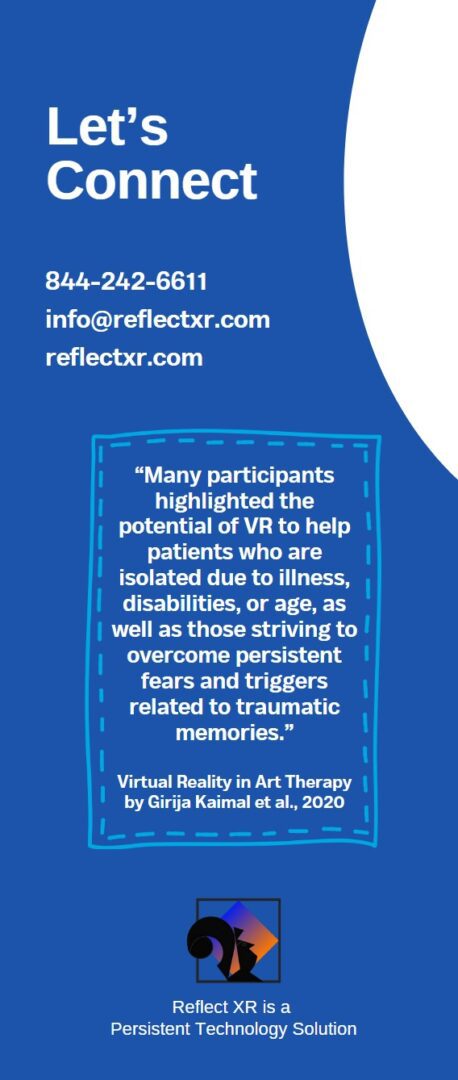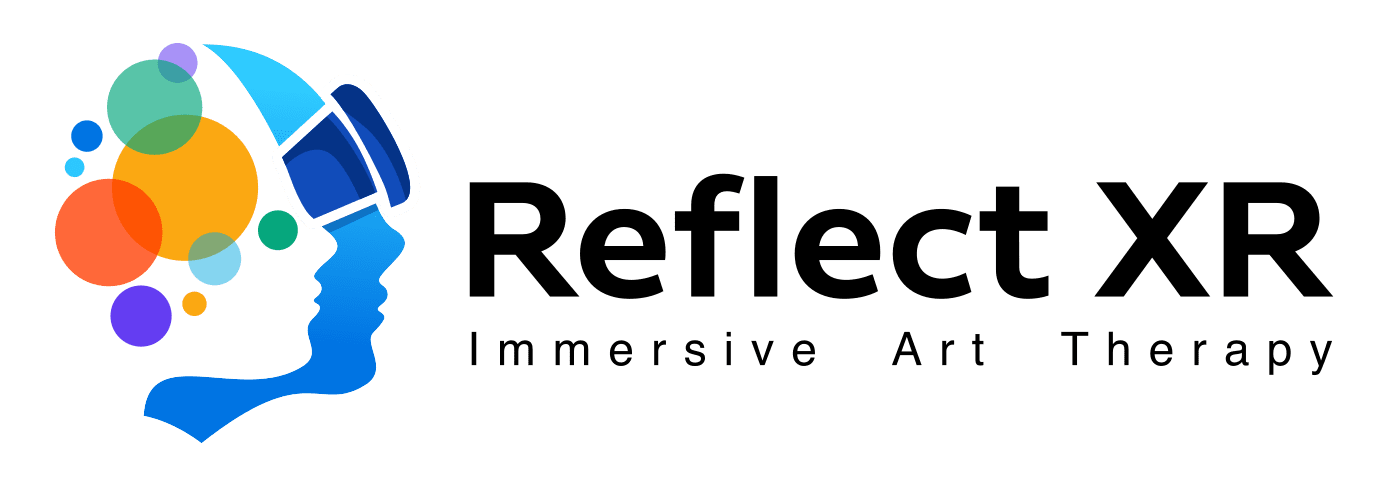
Art Therapy in Virtual Reality (VR)
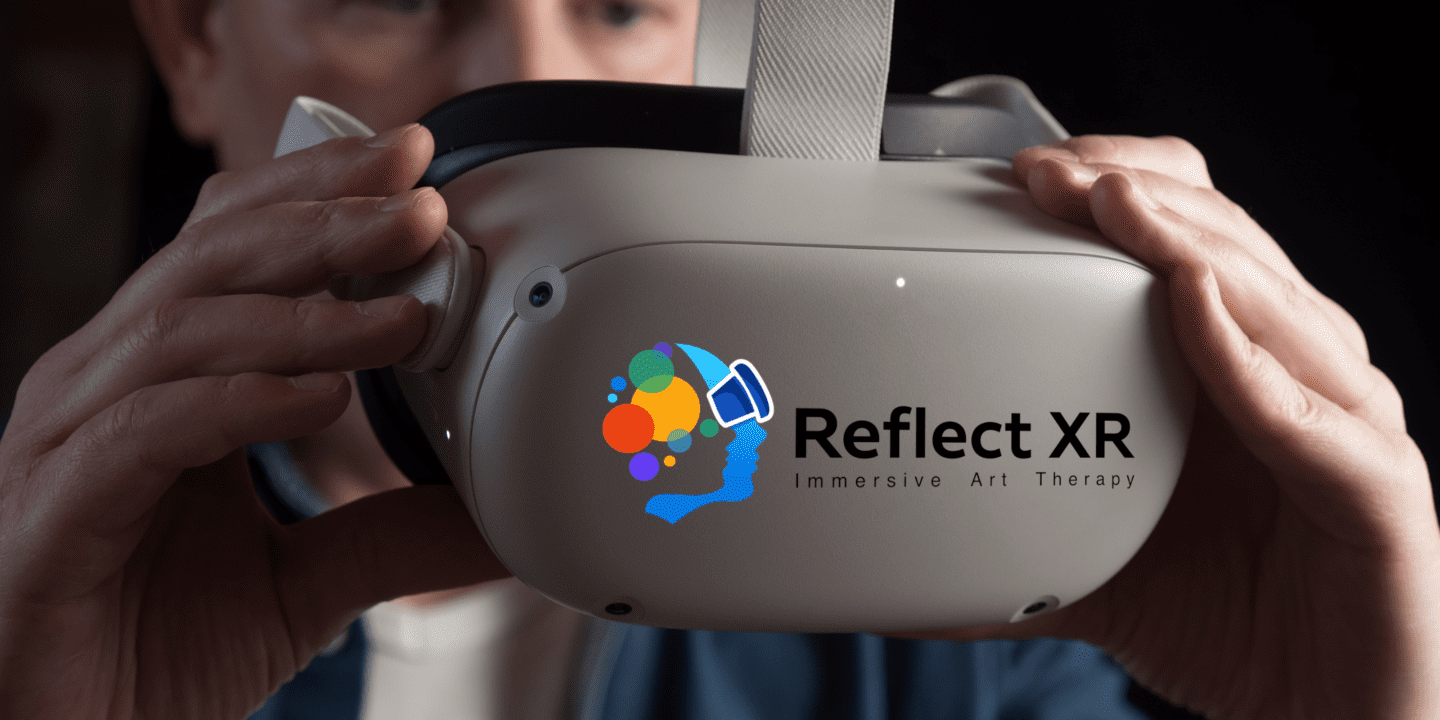
Bring your art-making experience to an immersive 3D environment and explore the world within through words, visualizations, and color. Research shows that art therapy is a successful psychotherapy for expressing feelings and improving life satisfaction. At the same time, VR allows full-body engagement and a sense of control that allows art to flow freely. Together, Reflect XR is revolutionizing remote art therapy as an accessible solution that enables art therapists to observe the creative process and share moments of insight from a HIPAA-compliant desktop application.
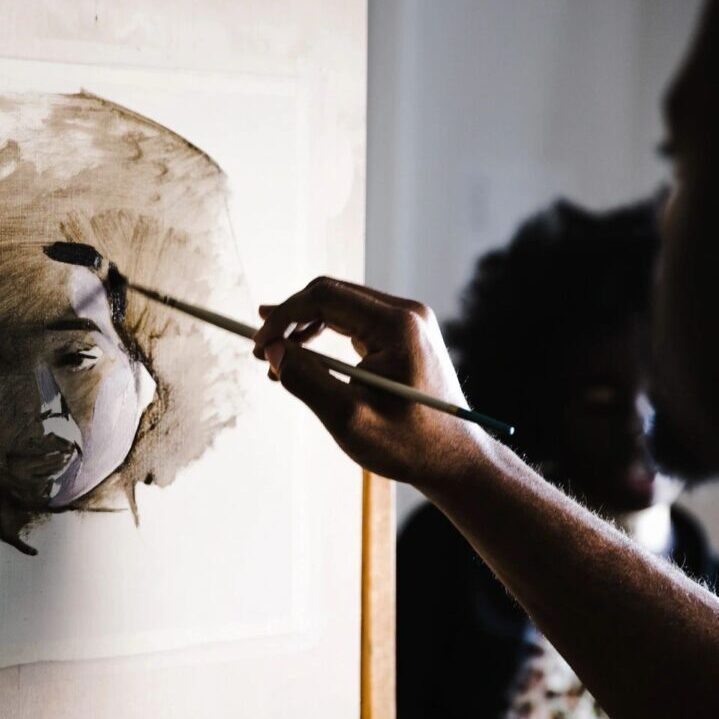
Transformative Healing
A study from 2016 in the Journal of the American Art Therapy Association found that even less than an hour of creative activity can reduce stress and positively affect mental health, regardless of artistic experience or talent. Benefits of art therapy include reduced stress and anxiety and improved quality of life.
This creative approach has proven positive therapeutic outcomes for individuals facing developmental, medical, educational, social, or psychological challenges. Art therapy taps into personal expression, allowing the release of emotions tied to past traumas, heightened self-awareness, and reduction of psychological symptoms.
Patient-Centered Design
See Reflect XR Adapted for Traumatic Brain Injury
Unlocking the Potential for Art Teletherapy
Therapists now have a standardized creative platform to transform sessions with a secure virtual environment.
Telehealth Art Viewing
Art Therapists currently use video conferencing platforms like Zoom to reach remote clients, making camera coordination an obstacle for viewing the art-making process. Reflect XR allows for remote access into the art-making process, playback of creative insights, and a secure way to save artwork for an individual's care journey.
Standardized Materials
Sessions are transformed with a standardized set of materials on headsets provided directly to the patient, allowing new insights and controls for studies and personal practice. Our human-centered solution brings together art therapists, users, and support networks to improve patient experiences and outcomes.
Cultivating Creativity
Reflect XR facilitates a more profound sense of self-awareness under the guidance of skilled art therapists. Art therapy is engaging, utilizing the brain's visual, emotional, and behavioral centers, paving the way to positive change. Regardless of artistic ability, creating art can help to release emotions, including those tied to traumatic experiences.
Adapted for Traumatic Brain Injury

Using a 3-session treatment methodology, Art Therapists can use Reflect XR to facilitate a dialogue with patients to reflect on their self-identity before and after traumatic brain injury. Our playback feature can take patients from creators of their art to observers of their creative process using a custom desktop application.
In the US, treatment costs have been estimated at $6 billion for PTSD and $910 billion for TBI. The Department of Defense recently reported over 485,000 TBIs among U.S. service members worldwide between 2000 to mid-2023, and veterans with moderate to severe TBI accounted for 33.6% of total excess deaths.
Over the past 10 years, Pilots of Art Therapy and virtual reality studies have been conducted with Service Members producing promising results. Art Therapy has the potential of opening a pathway to healing through increased self-awareness and a reduction of psychological symptoms via the release of emotions related to traumatic experiences stored implicitly (sensory) through creative expression.
Reflect XR facilitates the improvement of self-awareness through the exploration of identity pre- and post-injury in a safe and creative space. This work ultimately improves quality of life and fosters connection through creativity.
Meet the Team
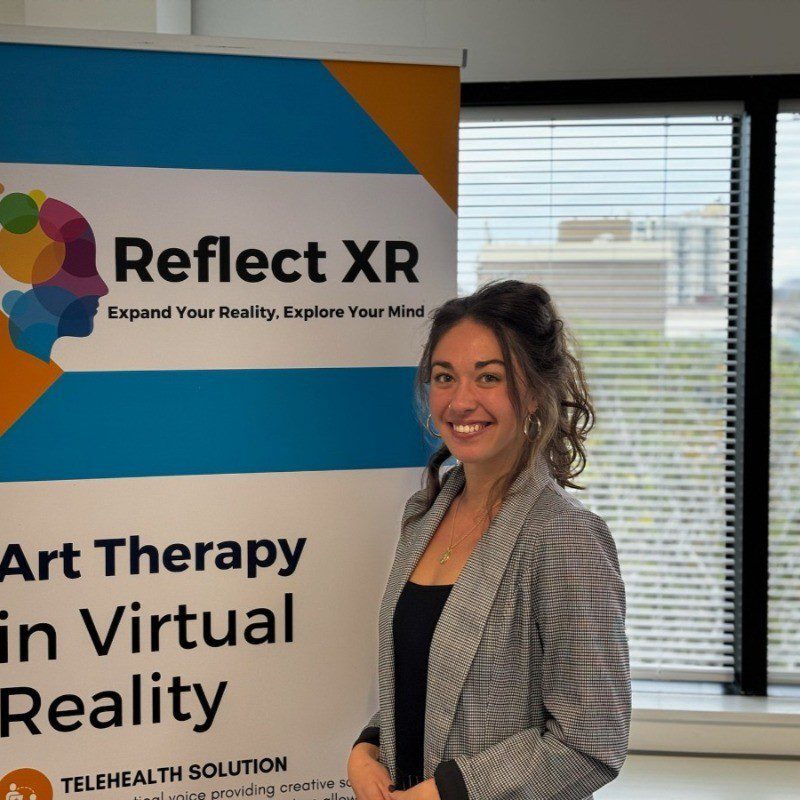
Annaliese Schultz, MA
Annaliese Schultz, M.A. has her Master of Arts in Art Therapy from George Washington University and her Bachelor of Arts in Neuroscience from the University of Southern California. Her experience lies in research regarding social and emotional neurodevelopment, and her graduate work on art therapy treatment for traumatic brain injury (TBI) has been integral in the development of Reflect XR.

Anju Bhargava, PhD
Anju Bhargava, Ph.D. has her doctoral degree in Counseling Psychology from Washington State University and her Bachelor of Arts from Whitman College. She is a licensed psychologist who brings extensive experience in telepsychological health as well as behavioral health tools and technology. She has a successful track record of digital health project leadership spanning the private and public sectors.

Nick Roseth
Nick Roseth is an explorer and leader in the field of emerging tech. With over 25 years in technology, design, product, leadership, and startups, he builds with the latest tools in AI, Spatial Computing, and more to build solutions for tomorrow. Experience across several industries including software, healthcare, construction, finance, and more drive his unique approach to problem solving and execution.
FAQ
Reflect XR is the application of Art Therapy in Virtual Reality. This form of therapy facilitates a dialogue between the patient, therapist, and caregiver around self-portraits of the patients before & after injury to improve self-awareness and improve future therapeutic outcomes.
Browse the Brochure
Welcome

Case Study
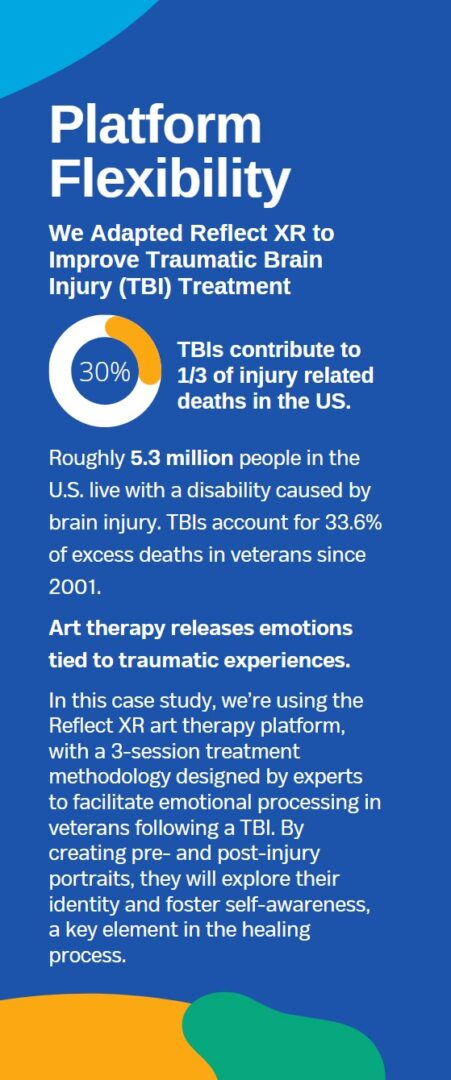
Research
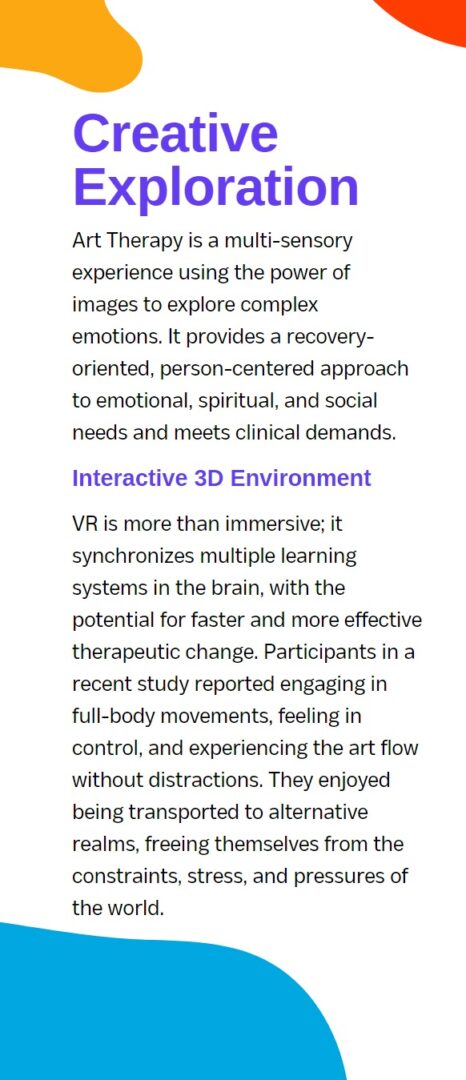
Users

Clinicians
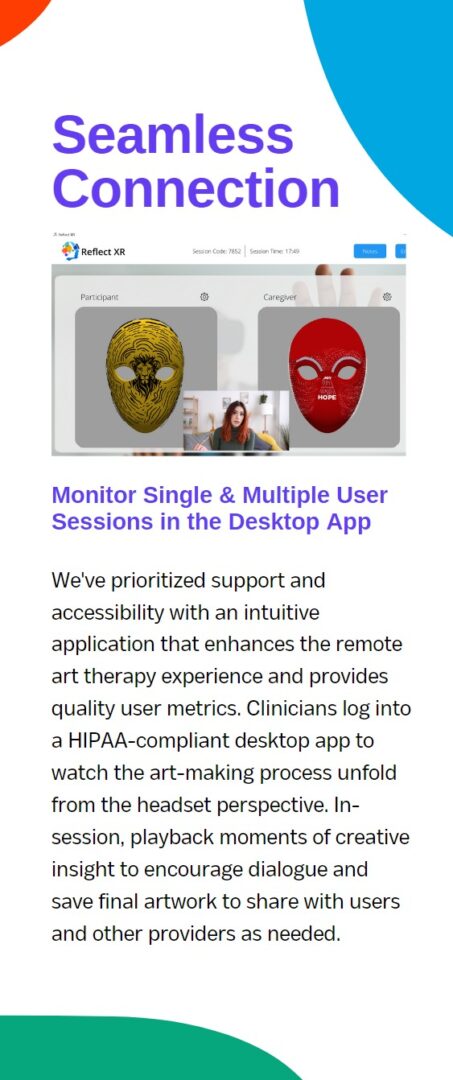
PTI
